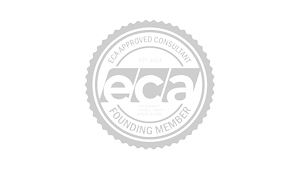Navigating the intricate world of energy management, businesses of all sizes are on a quest for strategies that not only cut down on costs but also bolster their sustainability and competitive edge. This pursuit often leads to the realisation that a one-size-fits-all approach to energy auditing falls short.
Instead, a custom-tailored energy audit, pinpointing unique inefficiencies and opportunities, becomes the key to unlocking potential savings and enhancing operational sustainability. With an in-depth understanding of the complex dynamics of energy consumption, we delve into the nuances of crafting audits specifically designed to meet your business’s unique needs, ensuring that every recommendation aligns with your specific goals and challenges.
As businesses grapple with escalating energy costs and the pressing need to adopt more sustainable practices, the importance of a meticulously conducted energy audit cannot be overstated. Drawing from years of expertise in energy management, we’re poised to guide you through the process, revealing how a bespoke energy audit can illuminate the path to reduced expenses and a smaller carbon footprint.
Whether you’re a small startup or a sprawling enterprise, this guide promises to equip you with the insights and strategies necessary to transform your energy management practices. With a commitment to addressing your most pressing energy concerns, we invite you to explore how tailored energy audit services can be a pivotal step toward achieving your sustainability and efficiency goals.
Understanding Business Energy Needs
Understanding the intricate and multifaceted energy needs of businesses is essential for devising effective strategies to optimise energy usage and reduce operational costs. An Energy Audit, conducted by an Energy Efficiency Expert, is a fundamental tool in this process.
By comprehensively assessing energy usage, an Energy Audit enables businesses to identify areas of energy wastage and prioritise energy conservation measures. This detailed understanding of energy usage and patterns allows businesses to implement targeted strategies to reduce energy consumption, leading to significant cost savings.
Moreover, understanding business energy needs is not only a means to reduce operational costs but also a way to allocate saved funds to other areas of the business for growth and development. Businesses that invest in understanding their energy needs can make informed decisions for their energy management, ultimately increasing sustainability and environmental friendliness.
Therefore, an Energy Survey to comprehend energy needs is a crucial step for businesses looking to optimise energy usage, reduce costs, and enhance their overall operational efficiency.
Benefits of Tailored Energy Audits
The comprehensive insights gained from an Energy Audit pave the way for businesses to benefit from tailored energy audits, which offer targeted strategies for optimising energy usage and realising substantial cost savings.
Tailored energy audit services, provided by a reputable energy audit firm, are designed to analyse specific energy consumption patterns within a business, providing actionable recommendations to reduce energy costs and improve overall operational efficiency.
By conducting a comprehensive energy assessment, businesses can gain expert advice on potential energy-saving opportunities tailored to their unique operational requirements.
The detailed report generated from a tailored energy audit outlines a roadmap for businesses to make informed decisions that align with their goals for a sustainable future.
This approach empowers businesses to take control of their energy usage and make strategic investments in energy-efficient technologies and practices.
Ultimately, the benefits of tailored energy audits extend beyond immediate cost savings, contributing to a more sustainable and environmentally conscious approach to energy management.
Key Components of a Tailored Energy Audit
Upon conducting a tailored energy audit, a thorough assessment is conducted to identify key components affecting energy consumption within the business, providing detailed insights into potential efficiency improvements.
The audit encompasses three levels:
- Walk-through Analysis, Energy Survey and Engineering Analysis, and Detailed Analysis of Capital-Intensive Modifications. These levels consider the facility size, business type, and energy requirements.
The assessment covers both interior and exterior aspects of the building, including the condition of technology and equipment. Furthermore, the audit emphasises the importance of available documentation to guide the process and its outcomes. It analyses based on business type and energy requirements, providing insights into energy consumption and potential efficiency improvements.
By identifying areas that impact energy systems and operating costs, tailored energy audits enable businesses to make informed decisions to reduce energy usage, leading to significant energy savings.
This detailed approach ensures that businesses have a comprehensive understanding of their energy usage and can implement targeted strategies to improve efficiency and sustainability.
Choosing the Right Energy Audit Level
When considering the optimisation of energy usage within a business, the initial step is to carefully assess and select the most appropriate energy audit level. This decision is crucial in gaining insights into potential energy-saving opportunities and reducing operational costs.
To choose the right energy audit level, businesses should consider the following:
- Scope of Assessment: Different audit levels offer varying scopes of analysis, from basic evaluations to comprehensive assessments involving capital-intensive modifications. Understanding the depth of analysis required is essential in identifying areas for improvement and potential cost savings.
- Tailored Approach: Tailoring the energy audit level to the specific needs of the business is vital. This ensures that the energy auditor focuses on the areas that are most critical to the business’s energy usage, providing a detailed report outlining potential energy-saving opportunities.
Implementing Energy Audit Recommendations
After carefully selecting the most appropriate energy audit level, businesses can now focus on the practical implementation of the recommended energy-saving measures to optimise their operational efficiency and reduce costs. Implementing energy audit recommendations is a crucial step towards achieving net zero energy use and improving the environmental footprint of a business. By offering a comprehensive and detailed analysis of capital-intensive, energy-intensive processes, energy audit recommendations provide valuable insights into the most effective ways to improve your energy efficiency and reduce operational costs. To facilitate the practical implementation of these recommendations, businesses should prioritise measures that offer a significant return on investment and align with their sustainability goals. The following table outlines key considerations for businesses to keep in mind when implementing energy audit recommendations:
| Considerations | Description |
|---|---|
| Financial implications | Evaluate the cost and potential savings of each recommendation. |
| Environmental impact | Assess the environmental benefits and drawbacks of each measure. |
| Operational feasibility | Determine the practicality and impact on day-to-day operations. |


















